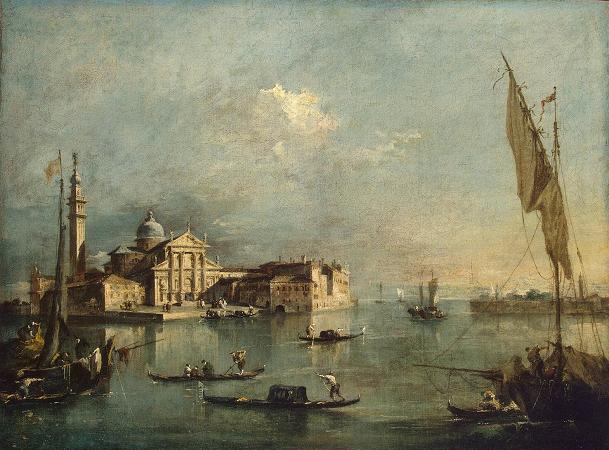Doge's Festival Paintings (c1775). A doge was an elected lord and head of state in several Italian city-states, notably Venice and Genoa, during the medieval and renaissance periods. Such states are referred to as crowned republics. The word is from the Venetian language, reaching English via French., along with the related English word duke and the Italian, and all descend from the Latin, meaning either spiritual leader or military commander. However, the words duce and duca are not interchangeable. Moreover, duca is an aristocratic and hereditary title. The wife of a doge is styled a Dogaressa and the office of the doge is termed dogeship. The title of doge was used for the elected chief of state in a number of Italian crowned republics. The two best known such republics were Venice and Genoa which rivalled each other, and the other regional great powers, by building their historical city-states into maritime, commercial, and territorial empires. Other Italian republics to have doges were Amalfi and the small town of Senarica. In several of his writings, Theodor Herzl, the founder of modern political Zionism, proposed that the future Jewish State take the title of Doge for its head of state-but this was not taken up by the actual state of Israel. After 1172 the election of the Venetian doge was entrusted to a committee of forty, who were chosen by four men selected from the Great Council of Venice, which was itself nominated annually by twelve persons. After a deadlocked tie at the election of 1229, the number of electors was increased from forty to forty-one. New regulations for the elections of the doge introduced in 1268 remained in force until the end of the republic in 1797. Their object was to minimize as far as possible the influence of individual great families, and this was effected by a complex elective machinery. Thirty members of the Great Council, chosen by lot, were reduced by lot to nine; the nine chose forty and the forty were reduced by lot to twelve, who chose twenty-five. The twenty-five were reduced by lot to nine and the nine elected forty-five. Then the forty-five were once more reduced by lot to eleven, and the eleven finally chose the forty-one who actually elected the doge. None could be elected but by at least twenty-five votes out of forty-one, nine votes out of eleven or twelve, or seven votes out of nine electors. Initially the doge of Genoa was elected without restriction and by popular suffrage. Following reforms in 1528, plebeians were declared ineligible, and the appointment of the doge was entrusted to the members of the Great Council, the. In Venice, doges normally ruled for life, although a few were forcibly removed from office. While doges had great temporal power at first, after 1268, the doge was constantly under strict surveillance: he had to wait for other officials to be present before opening dispatches from foreign powers; he was not allowed to possess any property in a foreign land. After a doge's death, a commission of passed judgment upon his acts, and his estate was liable to be fined for any discovered malfeasance. The official income of the doge was never large, and from early times holders of the office remained engaged in trading ventures. Originally, Genoese doges held office for life in the so-called perpetual dogeship; but after the reform effected by Andrea Doria in 1528 the term of his office was reduced to two years.
more...














